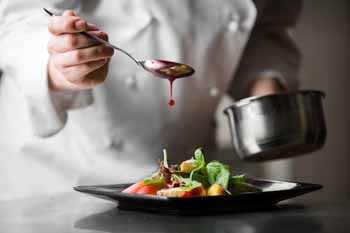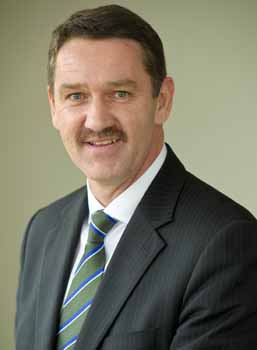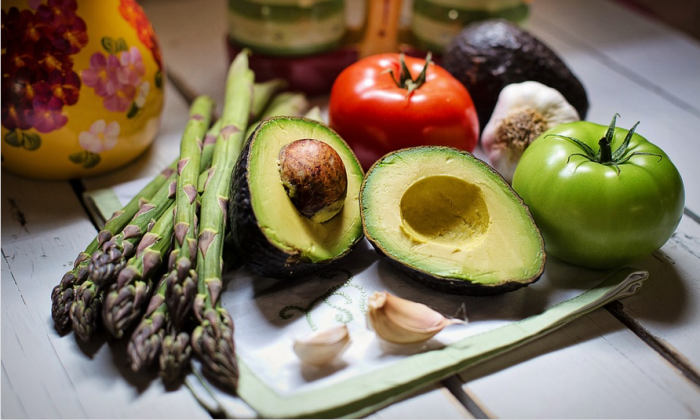Why we outsourced our successful catering operation
Why would a golf club with a seven figure food and beverage turnover end its in-house operation and contract it out to an external provider? Steven Brown reports.
Visiting golf clubs across Europe to advise them on all matters food and beverage has meant that I encounter a wide range of issues. These include a downturn in profitability, poor performing personnel, an assessment of return on capital for planned investment, staffing levels and, perhaps more than any other subject, questions about the correct trading model and whether an in-house service is better for them than an external source or vice versa.
I favour neither one nor the other method as every club’s circumstances are different.

I’ve visited clubs with F&B turnover figures of £80k, and ones that run into millions of pounds, but they all have one thing in common: a need to know if the system they are using is the right one and what alternative options are available to them that might better suit their particular circumstances.
The debate is equally divided among clubs that already have an external supplier (commonly referred to as a franchisee) and are considering bringing the service in-house, or those that already have the service in-house but are toying with the idea of contracting the food (and / or the bar) service to an external provider.
Why would a golf club with an F&B turnover in excess of £1 million even contemplate such a move? Wouldn’t that just be handing over the family jewels?
I recently visited a client of mine that decided, after much soul searching, to source an external provider for what is already a tremendously busy and well respected F&B operation.
Were they losing money? Were they disorganised? Were they too large an operation to control?
In seeking the answers to these questions I was granted an audience with my good friend Marc Newey, CEO of Roehampton Club, which has 5,000 members and a first-class reputation.

Marc Newey. Image by Anthony Upton
The F&B service generates sales in excess of £1.4 million annually and has, for the past 20 years, been an in-house provision. In 2017 Marc convinced the board at the club that Roehampton would best be served to reassign that operation to an external source.
I was then given access to the managing director of Levy Leisure, Jonathan Davies, the company invited to take on the challenge, and I will record his take on the proceedings a little later in the piece.
The F&B service at Roehampton generates sales in excess of £1.4m annually and has, for the past 20 years, been an in-house provision, but, in 2017, Marc convinced the board at the club that Roehampton would best be served to re-assign that operation to an external source.
I met with Marc over a working lunch on a busy day at the club:
What led you to rethink your club’s position regarding your fabulous F&B operation?
Whilst we had no concerns regarding the quality of service and offering the club has, we had, for many years, been heavily subsidising the food and beverage operation to the extent that it was costing us £1.8 million to generate a £1.4 million turnover, and it doesn’t take a genius to know that that rate of attrition cannot be allowed to continue unchecked. Bear in mind that we had, during my time at the club, already taken major strides to reduce that subsidy from a much larger figure, but you cannot keep making large scale economies, especially in the area of service levels and standards, before you begin to devalue the product as a whole, and so, at the board’s behest, we took the opportunity to review our options.
How did you select your preferred partner?
Once I had board approval to investigate the options, I set up a small working party to delve into the external provider market, but not before we clearly identified the parameters that would guide us through what might have been a difficult transition for our staff and members alike. We had to protect everyone’s interests here and keep everyone in the loop regarding our intentions.

Roehampton Club. Image: Andy Hiseman
The board backed the idea but wanted to ensure that the current staff would be able to transfer their employment over under TUPE, that current service times would be largely maintained, and most importantly for the members, that the club had final approval on any price increases and that the 10 per cent discount level that the ,embers currently enjoyed would be maintained.
How was the club performing at the time and did that have any major impact on the decision to change?
We were making margins in excess of 60 per cent on our food and 65 per cent on our bars after members’ discounts, so no problems there. It was simply that we felt the subsidy was too high with the major part of that being due in the main to the staffing of the three separate venues we have on site, and all with different hours that range from 7.30am to 11pm, and sometimes with extensions for special events. Our staff wage percentage was creeping up to 70 per cent which is, even for a club with our range of activities and events, bordering on being totally unviable. Roehampton Club makes a £1.7m surplus but we felt that if we could reduce the catering subsidy still further we could use these extra funds for member benefit.
How long did the process take to find a new partner?
I investigated other large volume outlets that I was aware of such as some of the London city clubs, as well as the top sports’ club in Birmingham, Edgbaston Priory Club, who had similarly undertaken this journey and were a comparable trading organisation to our own, with some 3,500 members providing tennis, squash, health facilities and so on and, after having lengthy discussions with them, decided that there was some merit in further investigating the external supply route. However, what attracted me most to the Edgbaston model, was that Levy had been working with them and forged a successful partnership. We invited three large companies providing this level of service to tender, involving numerous interviews and presentations to the working group and then the board, and only after lengthy discussions did we arrive at the deal with with the chosen company.

How long did it take from the germination of the idea to commencement of the arrangement?
The entire process took nearly a year. We had to be certain that the terms of the deal were right and that it was in the best interests of the club and our members. The board made a final decision in November 2017 to enter a partnership with Levy Restaurants with a projected start date of January 2018.
You spoke about the terms of the deal. Can you explain how that works?
In essence Levy took over complete responsibility for both the bar and catering operations including the staffing levels, stock ordering and control, health and safety, rotas, hiring and firing, training and so on, the same as you would expect if the operation was conducted internally. The key factor was that the terms were agreed on cost plus partnership.
What’s that?
The club pays a management fee which, in most cases, will equate to the salary of employing an F&B manager. We then jointly agreed an annual budget for turnover and costs based on past and future performance. We then agreed what percentage of the annual cost savings comes back to Levy and what comes back to the club.

How do they reckon to achieve the projected cost savings?
Good question. As part of Compass Group UK & Ireland and the multinational Compass Group, they have solid buying power which they bring to bear in favour of the client’s operation. If they can buy and provide the club with the same quality of goods at a much lower price, they reduce the wholesale cost of the food and drink substantially thus generating higher margins. All they then have to do is to maintain, or even reduce, the day to day running costs and the objective is achieved.
How do they reduce these running costs?
Through more effective staffing rotas and by providing greater efficiencies and productivity. We must remember that these people, forgive the pun, eat and drink these types of operations and know how to operate within tight guidelines that do not affect the levels of service, and to date, they have done very well at operating with more flexible working patterns and split shifts.
Did you have to make all of your existing staff redundant?
Not one of them. We simply transferred their employment over to the new operator under TUPE and this proved to be a relatively seamless process, albeit staff needed to readjust to working with their new bosses. We agreed with Levy that few if any changes would be made to the systems, numbers of personnel would not be reduced in the first three months of trading but instead that they would hold a watching brief.
How has it all panned out? Have you now abdicated all responsibility for the F&B operation?
Absolutely not. We insist upon regular weekly, monthly and quarterly meetings with the area manager responsible for our unit to review pre-agreed KPIs and then meet with the MD when we deem it necessary. Our operations manager, Nicki, liaises with their contract manager and executive chef on food and event presentation, while my GM Simon works on cost savings with Levy, and I maintain a presence by walking the job and observing operations and then reporting back any concerns or compliments that I have in connection with the workforce.
What would you say have been the cons of this move so far?
Because we dealt with local suppliers for foods, we could get deliveries every day if the need arose, but I suspect we were paying higher prices. Due to Levy’s use of specific suppliers, staff had to plan buying patterns and stock control much more carefully. Changing coffee and tea brands for example needs careful persuasion for some members, so Levy and ourselves worked with members to understand what they wanted and then to deliver within this brief wherever possible.

How did you allay those members’ fears?
We arranged a series of tasting sessions with both the house committees and member focus groups for approval before introducing any new products.
What has worked really well?
Training, compliance, buying power and management support. One thing that really blew us away was their expertise in organising the catering for three-day Gant Tennis Championships at our club. They brought in Payne and Gunter, a Levy owned brand who specialise in high end event catering, and the result was just sensational – and we received some commission!
Managing club life, especially with 5,000 members, can be a challenge in satisfying everyone’s needs, so how did Levy adapt to this?
Gingerly at first but now they understand the club culture and our specific needs and have adjusted well. They cater for sports and leisure venues throughout the UK, so this was about adapting the approach to fit our needs.
Where does this agreement go from here?
We have a five-year agreement with them and with constant review periods throughout, leaving room for discussion on terms and results, so we feel very confident about the future.

–––
I then took the opportunity for a brief chat with the MD of Levy Leisure, Jon Davies, and here is a resume of his comments:
Tell me why any club considering a move of this nature should consider working with in partnership with Levy Restaurants?
We have a huge amount of resources and experience, so we are well placed to provide a service to clubs of this size.
At what level of turnover do you consider that it may become viable for you to provide a service to a club?
Of course we have to work at a better than break-even point for both the client and us, so over £750k is ideal, but we will always discuss each situation on its individual merits.
If you had to sum up why a club would use your services, what would your response be? What benefits do you bring to the negotiation table?
We bring a quality food procurement service, experience, expertise, the potential of thousands of personnel from around the world, tried and tested controls, compliance and training programmes but, perhaps best of all, we provide our clients with peace of mind and fewer distractions from their other important tasks – in a nutshell, about food and beverage provision.

What does your world-wide experience tell you about the state of dining here in the UK and how will that shape your position going forward?
We believe that day to day speciality dining with fresh foods, cooked to order, is the way ahead. We tailor our offers to meet our client needs and to suit their visitors. We believe that food and drink can offer a unique and special experience at the place we offer our services, for example the new Tottenham Hotspur stadium where we are working with our client to come up with unique and bespoke offers.
What typical KPIs and targets would you want to set up with the client?
We would typically be monitoring spend per head, total sales, labour percentages, gross margins and of course cost reductions, which are all finance-based elements of the contract.

Additionally, we would monitor the performance of our personnel, the customer experience through mystery diners, and, of course, all of our systems and protocols.
Steven Brown FBII-tp is head of Inn-formation and can be contacted on 07785 276320 or by email at herinn@aol.com















Let me tell You a sad story ! There are no comments yet, but You can be first one to comment this article.
Write a comment